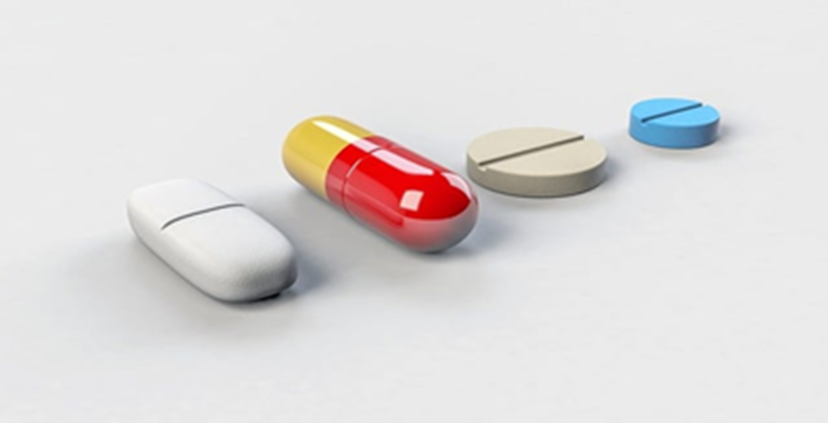Matthew Staniszewski of Washington, PA is a dedicated advocate and beacon of hope for countless individuals seeking vital healthcare services. Matthew Staniszewski served on the Executive Team of a dual-diagnosis treatment center, providing essential support for individuals grappling with substance abuse and its complex co-occurring challenges. In the following article, Matthew Staniszewski recounts the impactful journey of being a Mental Health & Healthcare Advocate, transforming lives across the region.
The journey to sobriety can be a complex and challenging one, especially when mental health conditions are involved. When substance use disorders and mental health conditions co-occur, they require a comprehensive and integrated approach to treatment.
Matthew Staniszewski of Washington, PA delves into innovative approaches to dual diagnosis treatment addressing substance abuse and co-occurring mental health conditions, offering a fresh perspective on a topic that affects millions of people worldwide.
Matthew Staniszewski Explains Common Treatment for Both Substance Disorders and Mental Health Conditions
The most common and recommended treatment for individuals dealing with both substance use disorders and co-occurring mental health conditions is
Dual Diagnosis Treatment. This integrated approach recognizes the intricate relationship between substance abuse and mental health issues and provides a comprehensive solution. It typically involves a combination of psychotherapy, medication management, individual and group counseling, education, and support for conditions.
The goal is to address both issues simultaneously, aiming for a well-rounded and holistic recovery. This approach has been shown to improve outcomes and enhance the quality of life for those facing the complex challenges of dual diagnosis.
Understanding Dual Diagnosis: Navigating the Complex Intersection of Substance Abuse and Mental Health
Matthew Staniszewski of Washington, PA reports that dual diagnosis, also known as co-occurring disorders, is a term that describes a challenging and often misunderstood intersection of two significant health concerns. To comprehend the intricacies of dual diagnosis and how it affects individuals, it is essential to delve into the concept and its components.
Common Co-Occurring Mental Health Conditions
Co-occurring mental health conditions often accompany substance abuse disorders. These may include anxiety disorders, depression, bipolar disorder, post-traumatic stress disorder (PTSD), and others. These conditions can complicate the journey to recovery, making it crucial to address both aspects simultaneously.
The Bidirectional Relationship
Matthew Staniszewski of Washington, PA explains that substance abuse and mental health issues have a bidirectional relationship, where one can exacerbate the other. For instance, using drugs or alcohol as a coping mechanism for mental health challenges can lead to substance abuse disorders. Conversely, substance abuse can trigger or worsen mental health conditions.
 Innovative Approaches to Dual-Diagnosis Treatment
Innovative Approaches to Dual-Diagnosis Treatment
While traditional treatments have proven effective, innovative approaches are emerging that offer more personalized, holistic, and technologically assisted solutions. Matthew Staniszewski of Washington, PA says that these pioneering strategies are reshaping the landscape of dual-diagnosis treatment, providing hope for those on the path to comprehensive recovery. Here are some innovative approaches to this complex issue:
Holistic Treatment Approaches
Holistic treatment approaches, often referred to as holistic medicine or holistic therapy, are a healthcare approach that considers the whole personmind, body, spirit, and emotionsin the quest for overall health and wellness. Rather than just focusing on specific symptoms or ailments, holistic treatments aim to address the individual as a complete and interconnected entity. Here are the key components of holistic treatment approaches:
Integrative Medicine
Matthew Staniszewski of Washington, PA notes that integrative medicine combines traditional medical approaches with complementary therapies like acupuncture, massage, and herbal remedies. It focuses on treating the whole person, not just the symptoms. This can be particularly beneficial for those dealing with dual diagnosis, as it addresses both physical and mental health aspects.
Mindfulness and Meditation
Practicing mindfulness and meditation can help individuals manage stress and gain control over their thoughts and emotions. These techniques have been shown to reduce the severity of mental health symptoms and cravings related to substance abuse.
Yoga and Exercise Therapy
Physical activity, such as yoga or exercise therapy, can have a profound impact on mental health. Regular exercise releases endorphins, which can improve mood and reduce anxiety. Matthew Staniszewski of Washington, PA says that Yoga, with its focus on mind-body connection, can also help individuals better understand and control their impulses.
Technology-Assisted Interventions
Technology-assisted interventions refer to the use of digital tools and technology platforms to deliver various forms of therapy, support, and treatment for individuals with mental health and substance use issues. These innovative approaches harness the power of technology to make mental health and addiction services more accessible, cost-effective, and efficient. Here are some key elements of technology-assisted interventions:
Telehealth and Online Support
Telehealth and online support offer remote access to therapy, counseling, and support groups, making treatment more accessible for those with dual diagnosis. Telemedicine services that provide individuals with increased access to specialized therapists, as well as the convenience of receiving treatment from the comfort of their home, include:
- Sesame
- BetterHelp
- Talkspace
- Cerebral
- LiveHealth Online
Matthew Staniszewski of Washington, PA explains that online support is a significant contributor to dual-diagnosis treatment, offering individuals access to resources, information, and support from their homes. It may involve virtual therapy sessions, online support groups, and educational materials. It enables individuals to connect with others undergoing similar experiences, providing a sense of community and diminishing feelings of isolation.
Mobile Apps for Recovery
There's an array of mobile apps designed to aid individuals in their recovery journeys. These apps offer various features, including goal tracking, medication reminders, mood monitoring, and access to support groups, making it easier to stay on track and receive support. Some of the most widely used mobile applications for dual diagnosis recovery include:

Peer Support and Recovery Communities
In dual diagnosis treatment, peer support and recovery communities serve a vital function by fostering connection, understanding, and encouragement throughout the recovery journey. These organizations offer a secure, non-discriminatory environment in which individuals can interact with others, acquire new abilities, and obtain the assistance they require to surmount their difficulties.
Matthew Staniszewski of Washington, PA says that examples of peer-led mutual help organizations for individuals with co-occurring substance use disorders and mental health conditions include Dual Recovery Anonymous, Double Trouble in Recovery, and Dual Diagnosis Anonymous. Regular attendance at these meetings has been associated with fewer psychiatric symptoms, increased rates of abstinence, and greater adherence to psychiatric medication.
Benefits and Outcomes Dual Diagnosis Treatment
The benefits and outcomes of dual diagnosis treatment are numerous, as it addresses both the addiction and the co-occurring mental health condition in a comprehensive and integrated manner. Improved recovery rates, increased quality of life, and a decreased stigma associated with dual diagnosis are just some of the advantages of obtaining professional assistance for co-occurring disorders.
Addressing both substance abuse and mental health conditions concurrently is more likely to result in sustainable recovery and improved quality of life for individuals. Additionally, Matthew Staniszewski of Washington, PA explains that dual diagnosis treatment can:
- Help reduce the stigma surrounding mental health and substance abuse disorders
- Encourage more individuals to seek help
- Foster a supportive environment for recovery.
Improved Recovery Rates
Incorporating innovative approaches into dual diagnosis treatment can significantly improve recovery rates. By addressing both substance abuse and mental health conditions simultaneously, individuals have a higher chance of achieving lasting recovery.
Enhanced Quality of Life
The goal of dual diagnosis treatment is not only recovery but also an improved quality of life. Innovative approaches can help individuals regain control over their lives, strengthen relationships, and find a renewed sense of purpose.
Summary
In conclusion, innovative approaches to dual diagnosis treatment offer hope and healing for those struggling with the complex combination of substance abuse and mental health conditions. Matthew Staniszewski of Washington PA indicates by taking a holistic, technology-enhanced, and personalized approach, we can significantly improve the lives of individuals facing these challenges, ultimately reducing the stigma surrounding dual diagnosis. Matthew Staniszewski of Washington PA, reminds all that if you or someone you know is dealing with a dual diagnosis and substance abuse challenge, remember that help is available, and recovery is possible.
 Innovative Approaches to Dual-Diagnosis Treatment
Innovative Approaches to Dual-Diagnosis Treatment